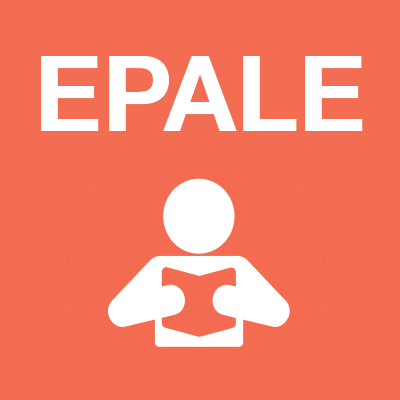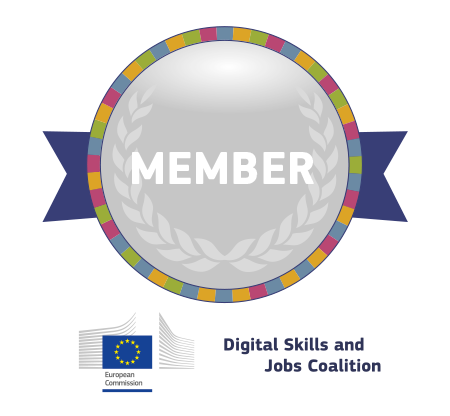Learning in Digital Age: Coding for Schools

Description: Coding is becoming a basic literacy in the digital age. To be able to thrive in tomorrow’s society, young people must understand and be able to work with the technology around them. Education systems around the world now have a goal to provide students with new possibilities to design, create and express themselves with digital technologies, starting from a young age. There is no doubt that while not every student will choose a path to be programmer or computer scientists, having a basic knowledge of technology will create countless opportunities for them in the future.
During the course, participants will be introduced to the concepts and key elements of computational thinking and coding, gain knowledge about coding languages for beginners and advanced level users as well as learn about games that they can use to teach coding to their students. At the end of the course, each participant with the help of the trainer will make an action plan about how they can introduce coding in their classroom – which coding languages, games and tools they can use to make the learning engaging and fun for every student.
FIND US ON
ASSOCIATE PARTNER
Dates and Locations
Larnaca, Cyprus
- 19.–23.01.2026
- 17.–21.05.2027
Valencia, Spain
- 06.–10.07.2026
- 06.–10.12.2027
Don’t see the dates that suit your group? Send us an e-mail with the proposed dates and location and we will get back to you.*
*- Only in case you are 7 or more persons from the same organisation.
Daily Programme
Monday
- Welcome and introductions
- Individual expectations, setting objectives for the week
- Getting to know each other & icebreakers
- Introduction to Computation and Computational thinking
- Reflections of the day, discussion
Tuesday
- Introduction to Coding
- The Benefits of learning to code for educators and students
- How coding is implemented in academic content – case studies and sharing best practice
- Basics concepts of coding (algorithms, sequencing, repetition, variables and selection)
- The Future of coding in schools
- Coding languages for teachers and students (Beginners: Scratch, Toontalk, Alice, etc. and Advanced: JavaScript, Phyton, etc.)
- Reflections of the day, discussion
Wednesday
- Learning through playing – games that teach coding (Minecraft, Code Combat)
- Coding Workshops – trying different coding programmes, games and tools
- Reflections of the day, discussion
Thursday
- Engaging every student and fostering creativity
- Open Educational Resources (OER) for practising and teaching coding at schools
- Combining language (coding), process (problem-solving) and tools (programmes)
- How can I add coding to my curriculum? - preparing an action plan
- Reflections of the day, discussion
Friday
- Summary and course evaluation
- Feedback & certificates
- Cultural excursion in the local area
Competences Acquired by Participants
Specific objectives of the training are:
- Raise awareness of technological development in teaching and learning
- Introduce concept of computational thinking and how it is related to coding
- Introduce key concepts of programming and basic programming languages for teachers and students
- Introduce games teacher’s can use to teach students programming
- Show how to create new learning environment incorporating coding in the classroom
- Improve the participants’ personal and professional skills in teaching
- Empower educators to feel confident while teaching coding
- Promote more interactive, caring and horizontal relationship between educators and students
- Provide skills and tools to incorporate technology in educator’s everyday teaching
- Enhance the participant’s ability to adapt to changes
- Create a cross-cultural environment to discuss and exchange ideas with colleagues
- Provide tools of professional development for the teacher
- Increase capacity to cooperate on an international level
- Improve communication and social skills
- Improve English language skills
Type of Certification of Attendance Awarded
- Certificate of attendance including description of training content and time input
- Certificate of Obtained Competencies
- Europass mobility certificates – to be issued by the applicant’s NA
Course Packages
Please note that ‘All in one – single room’ and ‘All in one – double room’ packages are being offered only in Limassol, Cyprus
1. ‘ALL IN ONE – Single room’ PACKAGE - 1240€
- Tuition fee and training material
- Certificate of Competence
- Welcome dinner
- Accommodation in a Single room in a 3 or 4-star hotel (6 nights)
- Full Board (5 days)
- Administration costs
- Coffee Breaks
- Cultural visit
2. ‘ALL IN ONE – Double Room Sharing’ PACKAGE- 1040€
- Tuition fee and training material
- Certificate of Competence
- Welcome dinner
- Accommodation - double room sharing in a 3 or 4-star hotel (6 nights)
- Full Board (5 days)
- Administration costs
- Coffee Breaks
- Cultural visit
*Choose double room sharing if you are 2 colleagues from the same organisation willing to share a double room/ or if you have any accompanying person travelling to the venue of the course together with you (we can arrange the accommodation for accompanying persons as well).
3. ‘BASIC’ course PACKAGE - 450€
- Tuition fee and training material
- Certificate of Competence
- Welcome dinner
- Administration costs
- Coffee Breaks
- Cultural visit
Note: separate invoices for the training fee only (400 EUR) can be issued upon request from the organisation.
DOREA as well offers group discounts in the case of 7 or more persons from the same organisation.





